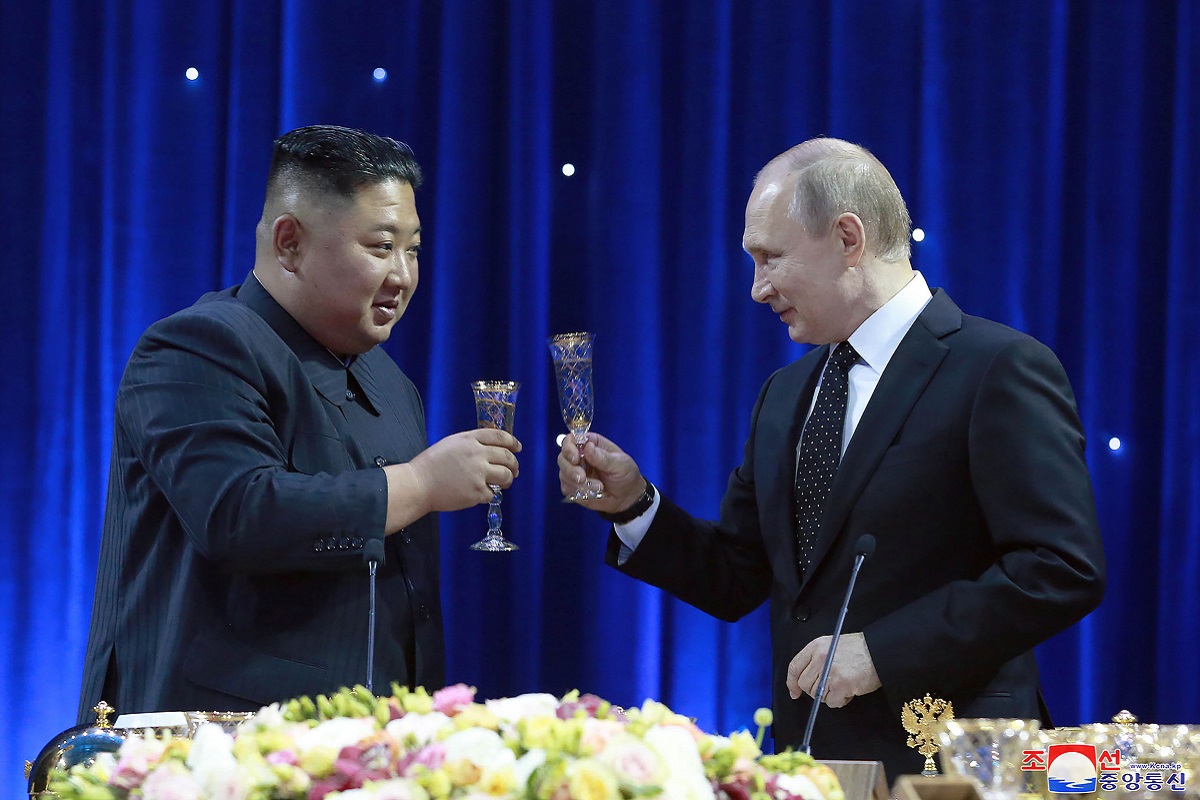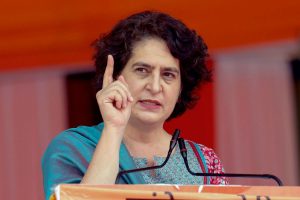Kim Jong-un’s gift of a golden sword to Vladimir Putin and the Russian President’s sabre for his North Korean counterpart did, in a way, set the tone for Thursday’s historic summit in Vladivostok.
Such totems of bonhomie, not exactly simulated as during Kim’s summit with Donald Trump last year, were reinforced with champagne toasts and performances of Russian folk dances and also, of course, at the dinner table ~ borscht and reindeer dumplings, as well as two types of wine. Aside from the atmospherics, the striking feature of the meeting was Kim’s anxiety to neutralise the failure of his meeting with President Trump, first in Singapore last June and in Hanoi in February this year.
Advertisement
To an extent, that immediate objective has been fulfilled. If it takes two to tango in matters diplomatic, the summit at the high table of Vladivostok was a modest success. Not the least because President Putin has acknowledged that President Kim requires “security guarantees” in order to abandon his nuclear programme.
This, it would be useful to recall, was the bone of contention during Kim’s meeting with Trump. The Kremlin has thus almost readily concurred with the perception in matters nuclear of the occasionally belligerent North Korean President. We do not know if the progress was spurred by the fundamental ideological affinity.
Yet we do know that North Korea sees Russia as a potential ally in its negotiations with the US and as an equally potential source of support for its stuttering economy that has been contending with crippling sanctions. No less critical in terms of geostrategy is that Putin has offered to help break the nuclear deadlock, with both leaders pledging to forge stronger ties.
The forward movement in Vladivostok is doubtless an encouraging signal in the context of the failed Kim-Trump summit in the wake of the ballistic missile tests, as often as not capable of targeting Alaska and certain parts of mainland America.
The second summit was reduced to a fizzle, with the US President walking off from the venue ~ a decidedly diplomatic discourtesy. The failure, which had seemingly turned the clock back, had also served to steel Kim’s nuclear resolve.
Ergo, it is fervently to be hoped that the dynamics will now change and Kim will hold his fire and literally so in the aftermath of the face-to-face interaction with Putin. Notably, the two leaders have stopped short of announcing any agreement; a joint document was generally expected after the first-ever summit.
In point of fact, Russia can only offer modest diplomatic and economic support to North Korea. Suffice it to register that the friendly tone is in refreshing contrast to the failed summit with the United States of America. The Trump-Kim second summit in Hanoi ended without agreement.
As the two sides negotiate the road from Vladivostok, the progress or otherwise ~ towards de-nuclearisation ~ will be keenly observed across the seas.











